
Les Misérables is a French historical novel by Victor Hugo, first published in 1862, that is considered one of the greatest novels of the 19th century. Les Misérables has been popularized through numerous adaptations for film, television and the stage, including a musical.

Ignaz Philipp Semmelweis was a Hungarian physician and scientist of German descent, who was an early pioneer of antiseptic procedures, and was described as the "saviour of mothers". Postpartum infection, also known as puerperal fever or childbed fever, consists of any bacterial infection of the reproductive tract following birth, and in the 19th century was common and often fatal. Semmelweis discovered that the incidence of infection could be drastically reduced by requiring healthcare workers in obstetrical clinics to disinfect their hands. In 1847, he proposed hand washing with chlorinated lime solutions at Vienna General Hospital's First Obstetrical Clinic, where doctors' wards had three times the mortality of midwives' wards. The maternal mortality rate dropped from 18% to less than 2%, and he published a book of his findings, Etiology, Concept and Prophylaxis of Childbed Fever, in 1861.

Handcuffs are restraint devices designed to secure an individual's wrists in proximity to each other. They comprise two parts, linked together by a chain, a hinge, or rigid bar. Each cuff has a rotating arm which engages with a ratchet that prevents it from being opened once closed around a person's wrist. Without the key, the handcuffs cannot be removed without specialist knowledge, and the handcuffed person cannot move their wrists more than a few centimetres or inches apart, making many tasks difficult or impossible.

Mikhail Yuryevich Lermontov was a Russian Romantic writer, poet and painter, sometimes called "the poet of the Caucasus", the most important Russian poet after Alexander Pushkin's death in 1837 and the greatest figure in Russian Romanticism. His influence on later Russian literature is still felt in modern times, not only through his poetry, but also through his prose, which founded the tradition of the Russian psychological novel.
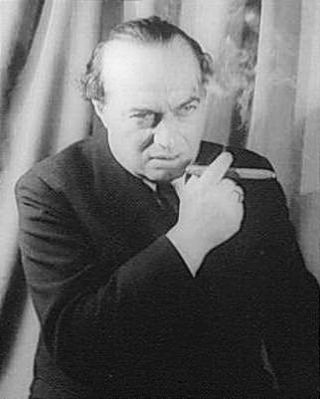
Franz Viktor Werfel was an Austrian-Bohemian novelist, playwright, and poet whose career spanned World War I, the Interwar period, and World War II. He is primarily known as the author of The Forty Days of Musa Dagh, a novel based on events that took place during the Armenian genocide of 1915, and The Song of Bernadette (1941), a novel about the life and visions of the French Catholic saint Bernadette Soubirous, which was made into a Hollywood film of the same name.

Max Rudolf Frisch was a Swiss playwright and novelist. Frisch's works focused on problems of identity, individuality, responsibility, morality, and political commitment. The use of irony is a significant feature of his post-war output. Frisch was one of the founders of Gruppe Olten. He was awarded the 1965 Jerusalem Prize, the 1973 Grand Schiller Prize, and the 1986 Neustadt International Prize for Literature.

Franz Carl Heimito, Ritter von Doderer, known as Heimito von Doderer, was an Austrian writer.
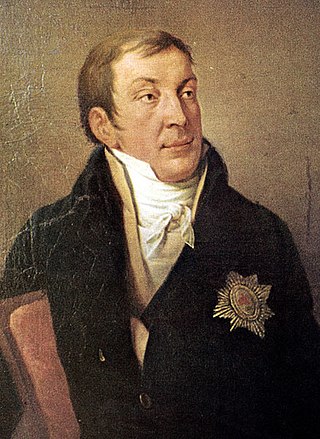
Karl Alois, Prince Lichnowsky of Woschütz; was the second Prince Lichnowsky and a chamberlain at the Imperial Austrian court. He is remembered for his patronage of music and his relationships with Wolfgang Amadeus Mozart and Ludwig van Beethoven.

Fantine is a fictional character in Victor Hugo's 1862 novel Les Misérables. She is a young grisette in Paris who is impregnated by a rich student. After he abandons her, she is forced to look after their child, Cosette, on her own. Originally a beautiful and naive girl, Fantine is eventually forced by circumstances to become a prostitute to support her daughter, losing her beauty and health until she finally dies of tuberculosis.
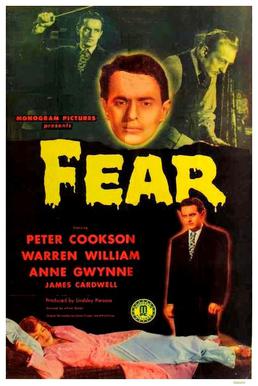
Fear is a 1946 American low-budget film noir directed by Alfred Zeisler and produced by Monogram Pictures. The film loosely follows the main plot of Fyodor Dostoyevsky's 1866 novel Crime and Punishment, without attribution.

Johann Friedrich Reichardt was a German composer, writer and music critic.
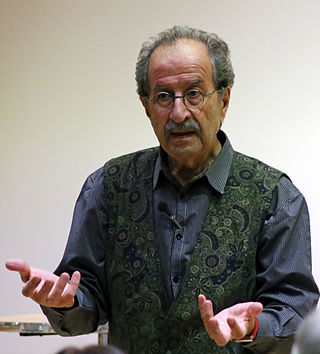
Rafik Schami is a Syrian-German author, storyteller and critic.

Spione is a 1928 German silent espionage thriller directed by Fritz Lang and co-written with his wife, Thea von Harbou, who also wrote a novel of the same name, published a year later. The film was Lang's penultimate silent film and the first for his own production company; Fritz Lang-Film GmbH. As in Lang's Mabuse films, Dr. Mabuse: The Gambler (1922) and The Testament of Dr. Mabuse (1933), Rudolf Klein-Rogge plays a master criminal aiming for world domination.
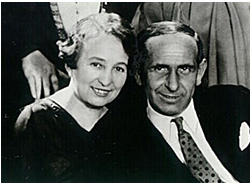
Luise Fleck, also known as Luise Kolm or Luise Kolm-Fleck, née Louise or Luise Veltée, was an Austrian film director, and has been considered the second ever female feature film director in the world, after Alice Guy-Blaché. Her son, Walter Kolm-Veltée, was also a noted film director. Technically, however, the second female feature film director in the world after Alice Guy-Blaché was chronologically Ebba Lindkvist, having debuted as a film maker one year before Luise Fleck.
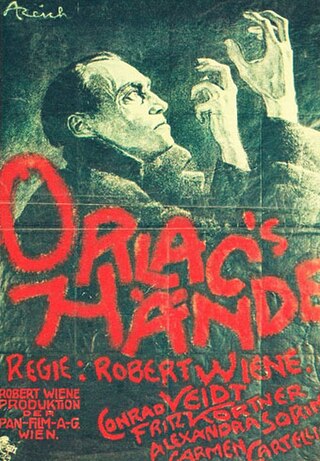
The Hands of Orlac is a 1924 Austrian silent film directed by Robert Wiene and starring Conrad Veidt, Alexandra Sorina and Fritz Kortner. It is based on the novel Les Mains d'Orlac by Maurice Renard.
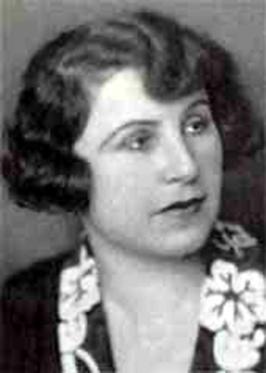
Gina Kaus was an Austrian-American novelist and screenwriter.
Peter Stephan Jungk is an American German-speaking novelist.
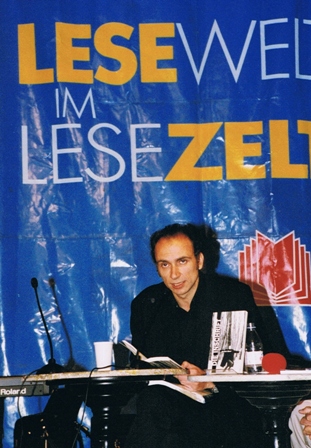
Dimitré Dinev is a Bulgarian-born Austrian writer. He is best known for his play Kozha i nebe, which controversially won the Askeer prize in 2007.
Ernst Stahl-Nachbaur was a German film actor.

Buki-Domino or Buki, is a gambling game that was widely played in Vienna in the early 20th century.


















